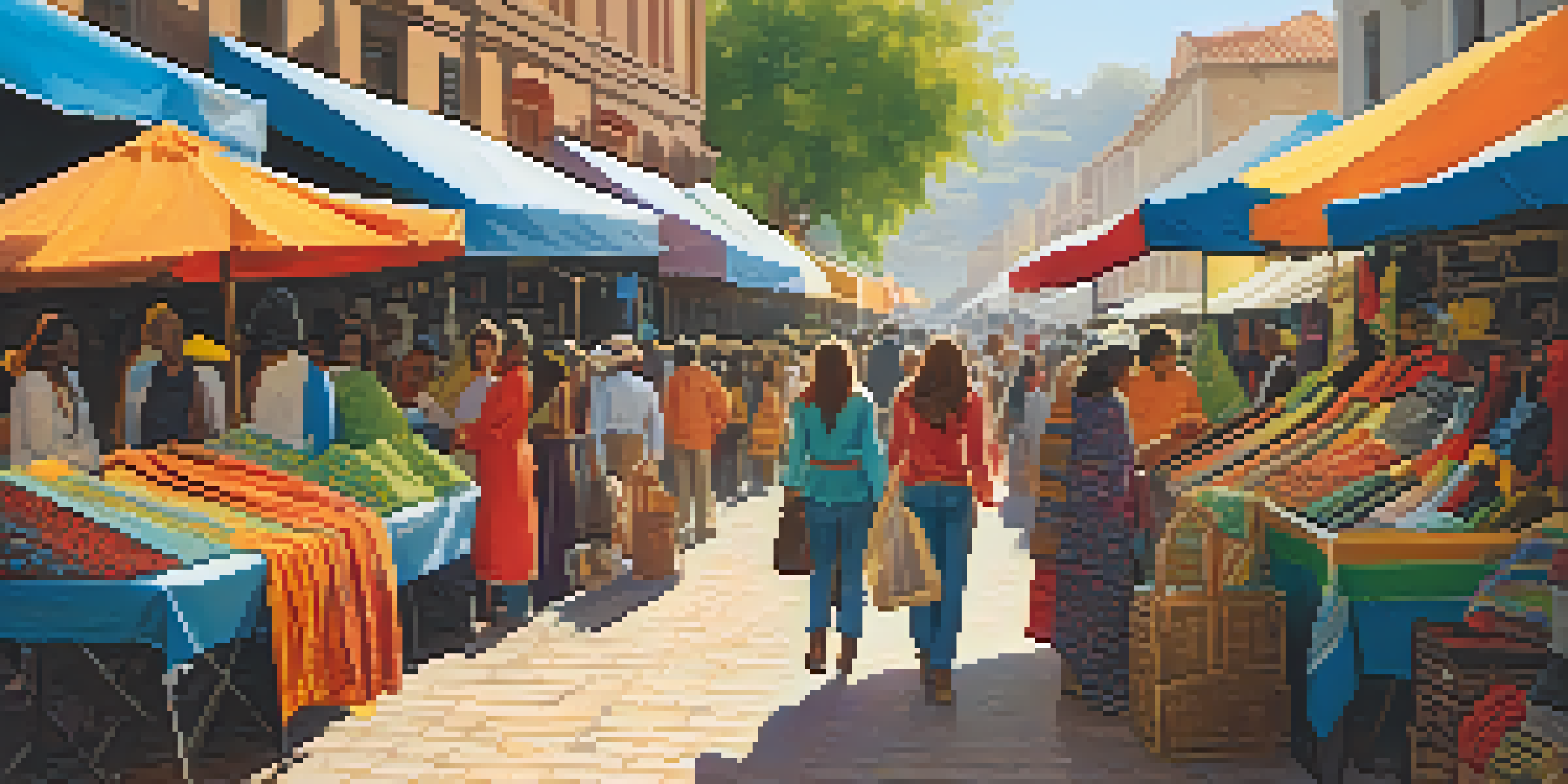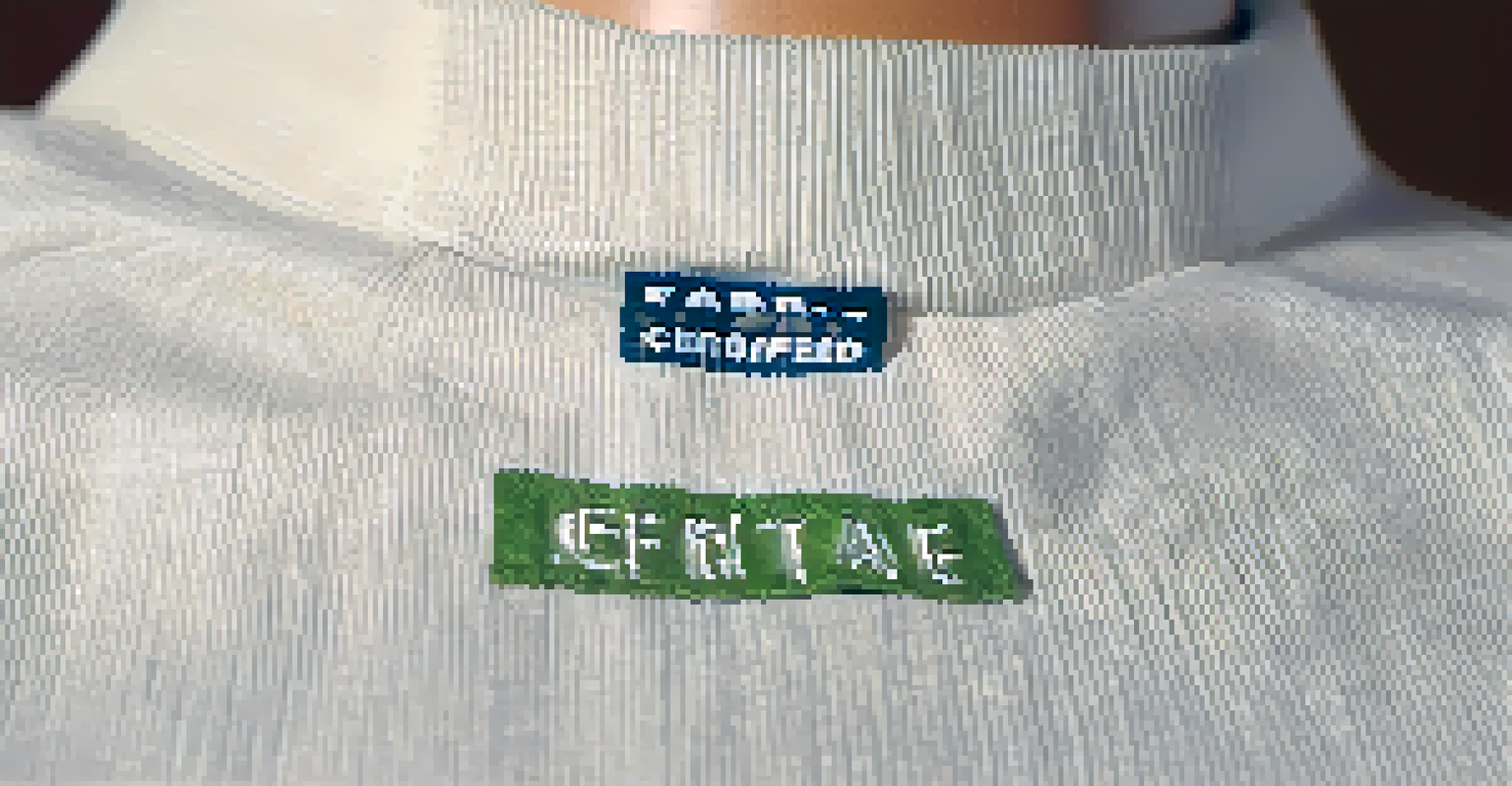Consumer Rights in Fashion: The Role of Fair Trade Practices

What Are Consumer Rights in Fashion Today?
Consumer rights in the fashion industry refer to the protections and entitlements that buyers have when purchasing clothing and accessories. These rights ensure that products are safe, accurately described, and fairly priced. For instance, if you buy a shirt that claims to be made of organic cotton but is actually a synthetic blend, you have the right to a refund or exchange.
The fashion industry is increasingly moving towards a model that prioritizes ethical practices, fair trade, and sustainability, because consumers are demanding it.
As consumers, we also have the right to know where and how our clothes are made. This transparency helps us make informed choices and supports ethical brands. In today’s market, brands that provide clear information about their supply chains foster trust and loyalty among their customers.
Understanding these rights empowers us to demand accountability from fashion brands. When we know our rights, we can advocate for fair treatment not just for ourselves, but also for the workers who make our clothes.
The Importance of Fair Trade Practices in Fashion
Fair trade practices ensure that producers in developing countries receive fair wages and work in safe conditions. In the fashion industry, this means that workers are respected and treated humanely, allowing them to support their families and communities. A prime example is the Fair Trade Certified label, which guarantees that a product meets specific ethical standards.

When we choose to support fair trade fashion brands, we are directly contributing to a more equitable global economy. It’s like casting a vote with our wallets for a world where everyone involved in the production process is treated fairly. This not only benefits workers but also enhances the quality and sustainability of the products we purchase.
Understanding Consumer Rights
Consumers have the right to safe, accurately described products and transparency about their origins.
Ultimately, fair trade practices challenge the traditional exploitation often seen in fast fashion. By promoting such practices, we help create a fashion landscape that values ethical production over mere profit.
How to Identify Fair Trade Fashion Brands
Identifying fair trade fashion brands can be a bit challenging, but it’s becoming easier as consumer demand grows. Look for certifications like Fair Trade, Global Organic Textile Standard (GOTS), or the Ethical Trading Initiative. These labels indicate that a brand meets rigorous ethical standards and prioritizes the welfare of its workers.
Every time you spend money, you're casting a vote for the kind of world you want.
Another way to identify these brands is to research their practices and values. Many ethical brands share their story on their websites, detailing how they source materials and treat their workers. Transparency is a key indicator of a brand's commitment to fair trade principles.
Lastly, consider joining communities or forums focused on ethical fashion. These platforms can provide recommendations and insights about credible fair trade brands, making your shopping experience more informed and aligned with your values.
The Impact of Consumer Choices on Fair Trade
Every purchase we make sends a message to the fashion industry about what we value. When we choose fair trade products, we’re not just buying clothes; we’re endorsing ethical labor practices and environmental sustainability. This ripple effect can encourage more brands to adopt fair trade practices as they respond to consumer demand.
For instance, the rise in popularity of sustainable fashion has pushed many big brands to rethink their production methods. They recognize that consumers are increasingly interested in where their clothes come from and how they’re made, leading to more ethical offerings in the market.
The Importance of Fair Trade
Supporting fair trade practices promotes ethical treatment of workers and enhances product quality in the fashion industry.
Our choices matter, and supporting fair trade can lead to a significant cultural shift in the fashion industry. By voting with our wallets, we can pave the way for a more just and sustainable future in fashion.
Challenges Facing Fair Trade in the Fashion Industry
Despite its many benefits, fair trade in the fashion industry faces several challenges. One major issue is the lack of awareness among consumers about what fair trade truly means. Many shoppers may prioritize price over ethics, inadvertently supporting brands that exploit workers.
Another challenge is the complexity of supply chains. Many fashion brands source materials from multiple countries, making it difficult to ensure fair practices throughout the entire process. This complicates efforts to uphold fair trade standards and maintain transparency.
Moreover, some brands may engage in 'greenwashing,' where they falsely claim to be ethical or sustainable without meeting the necessary criteria. It’s crucial for consumers to remain vigilant and informed to distinguish between genuine fair trade practices and misleading claims.
The Role of Certifications in Fair Trade Fashion
Certifications play a vital role in the fair trade movement within the fashion industry. They serve as a badge of honor for brands that adhere to ethical practices, reassuring consumers that their purchases are making a positive impact. Certifications such as Fair Trade, GOTS, and others provide clear guidelines that brands must follow to be recognized as fair trade.
These certifications involve rigorous audits and assessments of a brand's practices, ensuring that they meet high standards for fair labor, environmental sustainability, and community development. As a consumer, looking for these certifications can help simplify your shopping decisions and ensure that you’re supporting ethical brands.
The Role of Certifications
Certifications help consumers identify ethical brands, ensuring purchases contribute to fair labor and sustainability.
However, it’s essential to understand that not all certifications are created equal. Some may have less stringent requirements, so researching what each certification entails can empower you to make the best choices for your wardrobe.
Advocating for Consumer Rights and Fair Trade
Advocating for consumer rights and fair trade practices goes beyond individual purchasing decisions; it involves actively promoting these values within your community. You can start by sharing your knowledge about fair trade fashion with friends and family, encouraging them to make informed choices as well. Social media platforms are also effective tools for raising awareness and supporting ethical brands.
Additionally, consider participating in local events or campaigns that focus on fair trade. Many organizations host workshops, fashion shows, or discussions that highlight the importance of ethical consumerism. Engaging in these activities can help foster a culture of accountability and support for fair trade practices.

Lastly, don’t hesitate to voice your concerns to brands directly. If you notice a lack of transparency or ethical practices, reaching out to them can pressure them to improve. Together, we can create a powerful movement that champions consumer rights and fair trade in fashion.